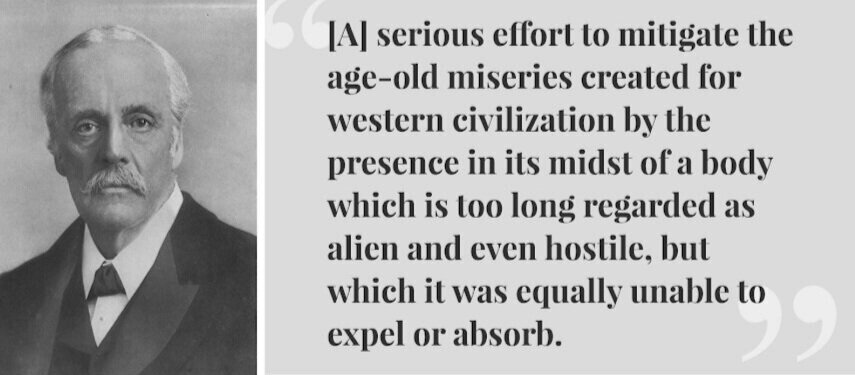Christian Zionist theology holds that Israel must gather all the Jews of the world, enlarge its territory, destroy Muslim holy places, and ethnically cleanse “the holy land” of all non-Jews. A majority of evangelical Christians in the United States believe that support for such actions by Israel will help hasten the the return of Christ and the desired end of the world. While most theologians (be they progressive or evangelical) consider it heresy, many Christians hold this far-right ideology without realizing its implications.
Christian Zionism is a political and theological ideology that misuses Christian texts to support the modern nation-state of Israel out of the belief that Israel has a cosmic purpose in bringing about the “End Times” which will culminate in the second coming of Jesus and the end of the world.
Christian Zionists make up the largest US voting bloc supporting Israel’s most heinous practices. Christian Zionist lobbies like CUFI leverage their political power to ensure the US gives moral and political cover to Israeli colonization, war crimes, and ethnic cleansing.
The arbirary arrest, and inhuman detention of Palestinian children is one of Israel’s many war crimes. Learn more at nowaytotreatachild.org
History
The history of Christian Zionism is deeply tied to certain strands of fundamentalist Christianity, particularly those tied historically (and presently) to imperialism and white supremacy. Christian Zionist theology is deeply tied to empire, originating at the height of British colonial expansion.
Dating back to the late-18th and early-19th centuries, Christian Zionism actually predates Jewish Zionism. Decades before Theodor Herzl founded Zionism (1897) as a secular nationalist movement among European Jews, British Christian leaders had already fixated upon the idea that “Jews should move to Palestine.” First appearing within puritan and later pietist circles, such “restorationist” ideas would gain significant traction among those Scottish Presbyterians who came to exert significant influence over British colonial policy (the infamous Lord Balfour most prominent among them). Informed by their theology, they falsely portrayed the land as empty and awaiting Jewish return. Meanwhile, it was the speculative 19th-century dispensationalism of John Nelson Darby, popularized by the then-ubiquitous Scofield Reference Bible, which truly helped disseminate such views within the American context. Even among those who had never in-fact met a Jew, let alone travel to the Holy Land, Jewish rule in Palestine came to be seen as a prerequisite for the return of Christ.

By the early 20th century leading politicians in Britain, including Prime Minister David Lloyd George and Lord Arthur Balfour, were deeply influenced by Christian Zionism. They and others supported the fledgling Jewish Zionist movement, helping it to expand and gain influence in Britain. This support would culminate in the Balfour Declaration, which granted Zionism international recognition and is still used as justification for the Zionist takeover of Palestine despite its origins in the context of British imperial ambition and WWI realpolitik. When leading American evangelists saw how these ideas influenced audiences, Christian Zionism became a key (albeit not universal) tenet of the Christian Fundamentalist movement of the early 1900s. To this day, political support for Israel remains a major tenet within Christian Fundamentalist communities.
After working hard for the establishment of a Zionist state within historic Palestine, as based upon a misguided reading of biblical prophecy, Israel’s creation in 1948 and eventual conquest of Jerusalem in 1967 came to be seen then as the fulfillment and therefore proof of such beliefs. It is, quite literally, the definition of “self-fulfilling prophecy.”
Contemporary Political Influence
A number of organizations promote Christian Zionist goals. They give money to Israeli settlements, perpetuate anti-Muslim hatred, slander those who speak up for Palestinian rights, and have incredible lobbying power with the US government. The largest of these organizations, Christians United for Israel (CUFI), report a following of eight million members; this is more than ten times the size of the significantly more well-known and infamous lobby group AIPAC.
Established in 2006, CUFI has long held strong connections within conservative politics. Its founder John Hagee was described by George W. Bush’s Press Secretary as being “able to quickly get someone on the phone at the White House.” As CUFI has grown into a massive and influential political machine in recent years, conservative Christians have been successful at translating their Christian Zionist beliefs to policy. While CUFI has long held political sway with past administrations, it found a champion in Donald Trump (as well as those who would seek to take up his mantle).
CUFI has celebrated playing a role in some of Trump’s most hawkish and repressive policies, such as the move of the U.S. embassy to Jerusalem, the ironically named “Executive Order on Combating Antisemitism,” the annexation of the Golan Heights, cutting humanitarian funding to Palestinians, and hostility with Iran.

While many have criticized organizations like AIPAC for promoting harmful US policies toward Palestinians, AIPAC’s size and influence pales in comparison to CUFI. CUFI has quietly become the largest organization in the United States driving support for Israel’s colonization and military occupation of Palestine, including the imprisonment of Palestinian children; the bombing of homes, schools, and hospitals in Gaza; massacring peaceful protestors; and the confiscation of Palestinian land. CUFI has cemented its place as a religio-nationalist organization that openly drives U.S. imperialism and the ongoing colonization of Palestine, all in the name of Christianity.
CUFI has received direct funding from the Israeli government in order to carry out activities promoting Christian Zionism, within North America and around the world, and lobbying for anti-Palestinian policies.
The theological background
At its core, Christian Zionism is a political theology. It is a synthesis of political ideology and religious belief designed to give Christian Zionists the necessary theological, political, and economic basis to justify their unqualified support for Israel. Essentially, it is an attempt to grant divine sanction to the modern state of Israel and gloss over any act of colonial violence they commit. Most evangelical Christians hold a Christian Zionist perspective without even realizing it. While it is a widely held belief, it is not a deeply held belief (see talking to Christian Zionists below).
End Times Theology
Christian Zionist theology is heavily rooted in a particular type of popular apocalyptic eschatology, a field of reflection about the end of human history and the manner in which it comes about. Within this framework, the creation of Israel as a state is viewed as a fulfilment of biblical prophecy, marking an important signpost before the return of Jesus. For many Christians, this moment is intimately connected with blissful concepts like the end of all suffering, earth being restored to its original perfection, and eternal comfort.
Christian Zionist theology, however, holds that before this future can come about Israel must gather together all the Jews of the world, enlarge its territory, destroy the Muslim holy places, and ethnically cleanse “the holy land” of all non-Jews. As it currently stands (though fortunately the number is decreasing rapidly), a majority of evangelical Christians in the United States believe that support for such actions will hasten the desired end of the world. This particular belief is fairly recent in Christian history, only coming into popular belief in the 1800s through the writings of John Darby and others described above. Christian Zionism is a far-right ideology to which most Christian denominations do not ascribe. Yet popular evangelists have sold this ideology widely. It’s popularity is due in large part to the second tenet of the ideology . . . economics.

Economic Theology
The second part of Christian Zionism is as deeply pragmatic and concerned about life on this earth as the first part is esoteric and concerned about a life to come. Motivated by economic connections to a prosperous Israeli state, Christian Zionism holds fast to a misreading of Genesis 12:3, where God says to Abram “I will bless those who bless you, and whoever curses you I will curse; and all peoples on earth will be blessed through you.” In their interpretation, the modern state of Israel becomes the “you” referred to in the verse. This falsely conflates the biblical Hebrews (an oft-marginalized and oppressed people) with modern Israel (a colonial nation state that is marginalizing and oppressing the Palestinian people). Drawing on principles taken from the prosperity gospel, which is a misguided belief that God will reward people with financial and material success, Christian Zionism states that one’s experience of blessing is predicated upon on one’s support for the state of Israel.
The promise of economic gain has been used by Christian Zionist missionaries to promote this ideology within traditionally marginalized communities, as well as export it to countries of the “global south.” Exploiting the promise of prosperity, organizations have been established to ensure that Christians around the world continually support Israel, both monetarily and politically. The largest and most powerful of these organizations, as mentioned, is CUFI. While Christian Zionism contains many theological elements, it is ultimately an ideology built upon greed and power. The theology acts as a smoke screen for the hateful ideology which lies beneath.
What’s wrong with Christian Zionism?
Understanding the history and theological background of Christian Zionism, a few points become painfully clear:
- Christian Zionism is powerful
Christians United for Israel is the biggest and strongest Israel lobby in the country. They claim to have more than ten times as many members as AIPAC. Though CUFI officially reports spending less money on lobbying than AIPAC, it’s categorization as a “Church” shields it from having to report much of its income and spending, allowing CUFI the power to spend without accountability.
- Christian Zionism is anti-peace
It is important to point out that CUFI’s political goal is not “peace in the Middle East.” Quite the opposite, as their theology and lobbying efforts show, they support Israeli dominance. CUFI has consistently decried any peace negotiation in the region, especially the recent Iranian nuclear deal. To them, hostility and war are positive signs that their apocalyptic goals are coming to fruition.
- Christian Zionism is a supremacist ideology
Christian Zionism was built upon and maintains a commitment to Christian supremacism. While it’s not uncommon for religious communities or ideological movements to claim exclusivity, or adhere to what may seem like mutually exclusive belief systems, the assertion of socio-cultural and political supremacy over and against one’s non-Christian or non-fundamentalist neighbors is a form of supremacism that runs counter to the spirit of Christ. Though proponents may speak of “Judeo-Christian values,” they are only concerned with a Christian (or more specifically “Western Christian”) reading of such values.
Organizations like CUFI push for Christian nationalism, the privileging of “cultural Christianity” and “traditional [read: white] values” in American civil life. Cultural Christianity is deeply tied to whiteness. In other words, what outwardly racist white nationalists say they are doing to “preserve whiteness” are the same things that Christian nationalists like CUFI say they do to “preserve Christian values.”
- Christian Zionism is anti-Muslim
The ideology of Christian Zionism demands an enemy. To many evangelicals, that enemy is Muslim. Christian Zionist leaders have been some of the worst perpetrators of anti-Muslim bigotry in the world. As one researcher put it, “Nearly every evangelical supporter of Israel I spoke with joined [their] biblical and political views to reach two related conclusions: that God has given the Jews eternal ownership of the entire biblical land of Israel and that Arabs and other Muslims are determined to sabotage that divine covenant.” Within Christian Zionist thinking, Muslims and Arabs (they rarely differentiate between the two) must play the role of the “enemies of God’s will.”
- Christian Zionism is antisemitic
Organizations like CUFI claim to be “philo-semitic” based on a shared political interest with many Jewish organizations in “supporting Israel.” Yet CUFI’s support for Israel’s worst practices is purely self-centered and not out of any care on might have for Jews. Christian Zionism construes Jewish identity and values to fit into a neat stereotype. Christian Zionism is not a “post-Holocaust” theology that wrestles with historic European anti-Semitism and Christian supremacism that would result in genocide. Instead, it maintains a posture of Christian supremacy, using Jews and Israel merely pawns within a prefabricated apocalyptic schema. This ideology cares nothing about Jewish values, diaspora Jews, or Judaism, but only Israel’s value as it relates to Christian Zionism.
The words of Christian Zionist leaders bear this out. John Hagee, head of CUFI propagates a number of antisemitic stereotypes. He has claimed that Hitler was a “half breed Jew,” that God cursed Jews, that “Rothchild bankers in Europe” controlled the economy, that the holocaust was ordained by God to send Jews “back to Israel,” and that antisemitism and the holocaust itself was the fault of Jews. He declared, “Their own rebellion had birthed the seed of anti-Semitism that would arise and bring destruction to them for centuries to come.”
According to Rabbi Jessica Rosenberg of the Jewish Voice for Peace Rabbinical Council, “CUFI claims to defend Israel in the name of supporting Jewish people. But in the theology of Christian Zionism, Jews are a means to an end with the ultimate goal being Christian salvation. That is an inherently antisemitic theology because it reduces Jews to pawns. I urge my community to reject CUFI because these people do not care about peace and justice, and they are not our friends.”
- Christian Zionism is anti-Christ
Theologically speaking, Christian Zionism makes a mockery of Christ in the same manner that it can be said Zionism makes a mockery of the Hebrew prophets. In their idolization of a modern-day nation-state, Christian Zionists have effectively dethroned Jesus in their marginalization of his mission, message, and ethical demands. In their insistence upon Israel as the fulfilment of biblical prophecy, they conveniently ignore Jesus Christ’s own claims to the same. In their obsession with real estate, they ignore the universal implications of Christ’s kingdom and the New Testament assertion that the whole earth is in-fact holy land. In their obsession with rebuilding the temple, they ignore Christ’s own assertion that first he and later the Holy Spirit through his people were in-fact the locus of God’s divine presence and dwelling place on earth. It must be added, however, the the Hebrew prophets had already set forth a vision of authentic, post-exilic faith no longer dependent upon land, power, or temple.
